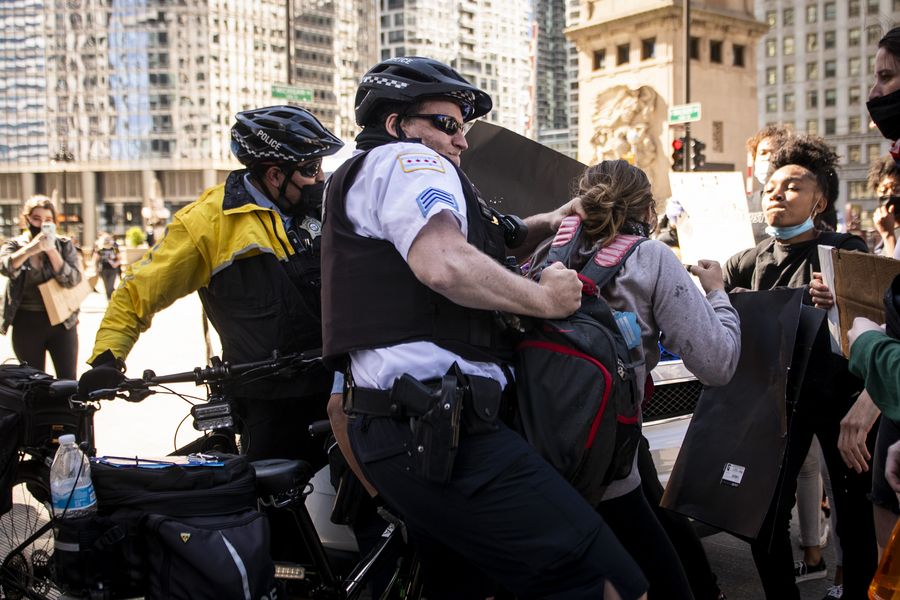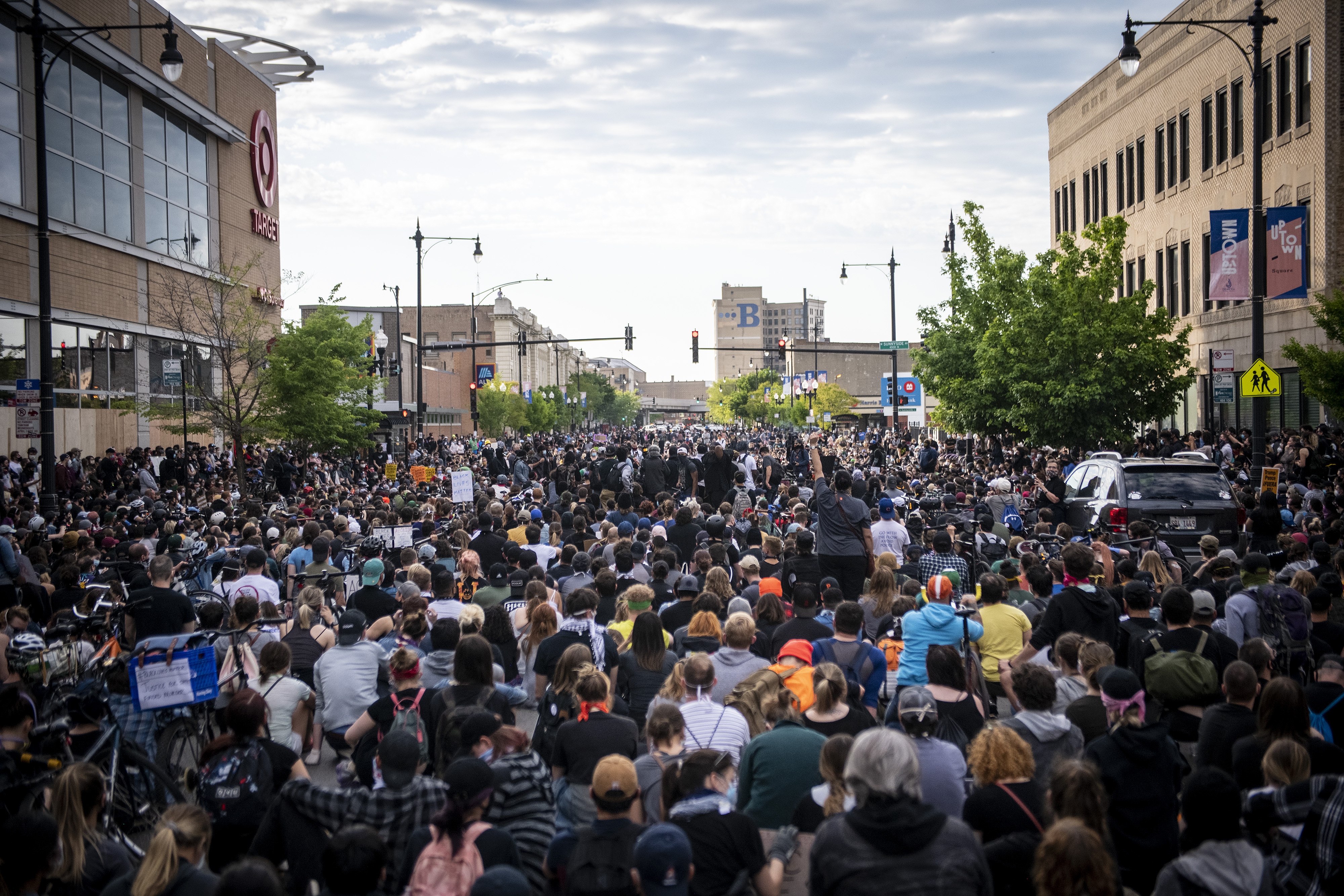Challenges in confronting US police brutality
- By Mitchell Blatt
 0 Comment(s)
0 Comment(s) Print
Print E-mail China.org.cn, June 5, 2020
E-mail China.org.cn, June 5, 2020

America was already facing an ongoing coronavirus pandemic, mass unemployment, and a fiercely contested presidential election, while its people were anxious about the state of the nation and the future. Now, the police killing of a black man in Minneapolis, Minnesota has sparked national outrage, and unrest has broken out across the country.
George Floyd was apprehended from his car on May 25 after the clerk at a corner store detected what they thought to be a counterfeit $20 bill. After Floyd was cuffed and apparently fell to the ground, the officers got on top of him, with Officer Derek Chauvin placing his knee directly across his neck for over eight minutes. While he was gasping for air, saying, "I can't breathe," Chauvin ignored cries from both Floyd and onlookers.
Videos of police killing suspects have gone viral before, but nothing quite so coldhearted as this has been caught on tape in such a dramatic and prolonged fashion. Four days later, Chauvin was arrested and charged with third-degree murder, while the three other officers involved were fired and placed under investigation.
Violent protests have previously erupted in Ferguson, Missouri in 2014 and Baltimore, Maryland in 2015. This time, however, unrest has spread to most major U.S. cities. Targets include not just the Minneapolis police department and big-box stores, but also immigrant- and minority-owned small businesses.
Forty cities now have curfews, and National Guard have been activated in 15 states. The president has been under lockdown in the White House, while the police have fired tear gas indiscriminately, and even shot and killed one protester in Louisville.
Now, despite widespread agreement that the officers' wickedness towards George Floyd was unacceptable, there is little consensus about how to solve the problem of police brutality. There is not even agreement that looting and arson are wrong, or even about the extent to which police brutality exists.
Rush Limbaugh, a white conservative radio host, joined Charlamagne tha God, a black progressive host, on the latter's radio show, where Limbaugh agreed that Chauvin was a murderer. "What happened to George Floyd sickened me," he said.
But the two disagreed on how deep the problem goes. Limbaugh insisted that such police brutality is not representative of America, "the greatest nation in the history of the world," to which Charlamagne replied, "The greatest nation for who? … I think it's easy for you to say because you're a white male and that comes with a different level of privilege."
Both of their arguments appeal to broad swaths of America – a diverse country, ethnically, politically, and in terms of attitudes and values. In recent decades, minority groups have become more vocal about expressing their opinions and fighting for their rights, in ways in which they would not have been able to in the past.

The problem America faces in dealing with these issues is how to maintain order and common identity as a nation while also addressing serious issues of racism against black and minority Americans that have been left to fester for too long.
For example, while moderates and even conservatives like Rush Limbaugh are happy to see the officer reprimanded in this particular case, past, and likely future cases have not been and will not be treated as if they are so clear cut.
Those who argue that American cops are fundamentally racist look to studies showing the high rate of black men killed by police. Decades of racial stereotypes have conditioned police to view black men as inherently aggressive and dangerous. The argument goes that officers – who are frequently white – do not live in the communities they police and lack empathy for the black men they confront on a day-to-day basis.
Those who contend that street murders carried out by racists like Chauvin are exceptions often point to the many peaceful interactions between police and citizens on dangerous streets, especially when suspects comply with the demands of officers. However, the U.S. has one of the highest murder rates in the developed world – for example, the rate in the neighborhood where Freddie Gray lived in Baltimore, is more than ten times the national average.
How do police protect the lives of citizens most at risk from murder while maintaining their duty to treat everyone fairly? In fact, increased police presence can put innocent people at risk, too, of being falsely accused or abused in the course of an investigation.
If it is true that most humans are biased to some degree or another, how can a police force – staffed and managed by humans – be built in such a way as to minimize bias?
I do not have answers to these questions, and I suspect few people do. In fact, there may be no answers. What I do know is that Americans will wake up tomorrow with over 105,000 dead of coronavirus to see the smoldering ashes of buildings burnt out across the country, and more families will join George Floyd's in grieving.
Mitchell Blatt is a columnist with China.org.cn. For more information please visit:
http://www.china.org.cn/opinion/MitchellBlatt.htm
Opinion articles reflect the views of their authors, not necessarily those of China.org.cn.
If you would like to contribute, please contact us at opinion@china.org.cn.






Go to Forum >>0 Comment(s)